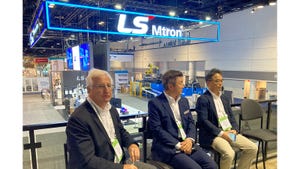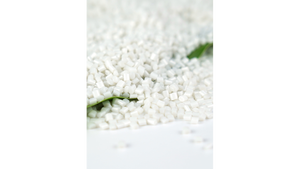Recycling laws prompt appliance design rethink
April 1, 2004
Legislation in Japan mandating home appliance recycling is radically transforming material selection and design.
Japan introduced legislation making recycling of home appliances compulsory starting in April 2001, with manufacturers charging consumers for collecting old appliances. The legislation also sets minimum recycling rates by weight for appliances. For example, 60% of the weight of a room air conditioner must be recycled, 50% of a refrigerator, and 50% of a washing machine.
These rates may be lifted to between 80% and 90% by 2008, and manufacturers have the most work to do when it comes to refrigerators. The recycling ratio here is currently only 51%, compared with 78% for air conditioners, and 60% for washing machines.
Faced with these recycling regulations, Japan''s appliance makers have moved to enhance the recyclability of their products by using fewer plastics and grades, and employing plastics that are easier to recycle. They are now tending to avoid ABS where possible, for example, as PS is considered to be easier to recycle. Suppliers are also influenced by fears that toxic substances derived from acrylonitrile may be emitted if ABS is incinerated.
Several manufacturers, including Fujitsu (Tokyo), and Matsushita (Osaka), have switched from using ABS in air conditioner drain pans, for example, to an alloy of PS and syndiotactic polystyrene (SPS). The SPS imparts chemical resistance, and overall, the alloy is slightly more cost effective than ABS. SPS/PS alloys have also been employed in air conditioner grills in commercial buildings, and in place of glass-fiber-reinforced PBT in a vacuum cleaner blower.
Polypropylene, meanwhile, has now replaced ABS as the material of choice in vacuum cleaner housings, thanks to its facile recyclability. In current refrigerator designs, trays are more likely to be chemical-resistant, general purpose PS than AS resin.
Manufacturers also are trying to avoid insert molding where possible to enhance recyclability. A propeller fan in a commercial air conditioning unit from Mitsubishi Electric (Tokyo), for example, formerly employed a metal boss. Now, an all-plastic design using glass-fiber-reinforced PP has been adopted.
Besides recycling issues, performance factors are also accelerating a trend in washing machines to switch away from PP drums and back to stainless steel. Fumiaki Baba, general manager of the Living Environment Systems Laboratory at Mitsubishi Electric, says, "Spin speeds of 1500 rpm employed in the latest machines result in PP drum deformation, even if a ribbed design is employed." Stainless steel is also being used in place of PP in benchtop dish dryers due to concerns over mold growth.
Appliance makers are also starting to steer clear of PVC. Some refrigerators now employ elastomers in place of PVC in gaskets, while more vacuum cleaners incorporate elastomeric hoses in place of those made of PVC. Flame-retardant PE, meanwhile, is also replacing PVC in wire encapsulation.
Gone are the days where appliance makers sought development of application-specific grades from their resin suppliers. "The emphasis now is using what''s already available," says Baba. Over the years, the number of grades used in refrigerators, for example, has fallen from around 30 to 10 or less. Whereas six PP grades were once used, now only two are employed. Similarly, only three PS grades are used in contrast with as many as 11 in the past, and the number of ABS grades has been reduced from 14 to five or fewer (including specialty grades for the inner box). In some products, PP is now used in the door inner liner.
The basic design philosophy of the day now says that appliances should use no more than three PP grades (general purpose, high-stiffness, and high-flow), three PS grades (general purpose, high-impact, and high-gloss), and three ABS grades (general purpose, high-impact, and high-flow).
Stephen Moore [email protected]
Contact information
Fujitsu | |
Matsushita | |
Mitsubishi Electric |
You May Also Like


